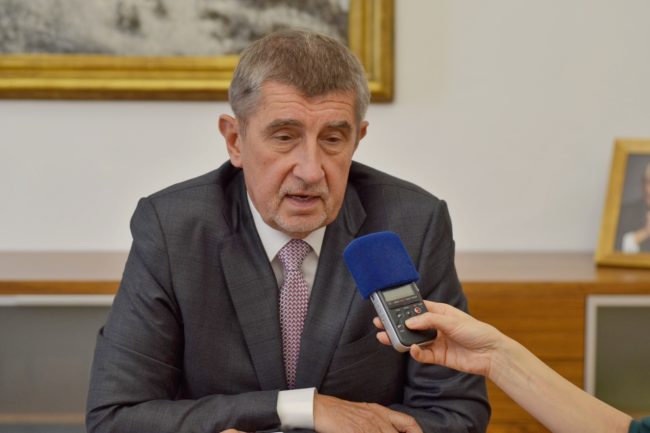Česko v roce 2021: Jak zdraví, bohatství a jádro ovlivní volby

October’s parliamentary election is likely to see the traditional fight of left versus right replaced by a face-off between mainstream and populist parties.
That said, there’s plenty of time for spin, scandal and scheming to change the course. “It will be interesting to see how Ano’s marketers will camouflage Babis’s failures in leadership,” Otto Eibl, an assistant professor in political science at Masaryk University, told BIRN.
It’s a contest that also looks set to formally introduce a new election format, with the traditional fight of left versus right to be replaced by a face-off between mainstream and populist parties.
“There’s no equilibrium now,” asserted Professor Vladimira Dvorakova, director of the Masaryk Institute of Advanced Studies at the Czech Technical University. “We’ve always had a competition pitching centre-right against centre-left, but now the left has practically disappeared.”
Babis’s populism has proved so effective that Ano has all but devoured the support of its left-wing coalition partners, and both the Social Democrats (CSSD) and Communist Party (KSCM) are at risk of seeing their support drop below the 5 per cent threshold for entering parliament.
The same threat – as well as the whiff of Ano’s blood carried by the polls – has pushed the mainstream to form election coalitions. Both Spolu, featuring the conservative Civic Democratic Party (ODS), Christian Democrats and Top 09, and the centrist coalition being built by the Pirate Party and the Mayors and Independents (STAN) are polling just behind Ano’s 25 per cent or so.
Wild card
At the same time, there’s a long way to go and Czech political history is littered with failed efforts at cooperation. “Both coalitions have a chance to win the election,” suggests Professor Lubomir Kopecek at Masaryk University, “but they could also easily be damaged by internal conflict.”
Babis will certainly hope so. Not only would that help Ano’s chances, but should his party win the election, he may need to pick off a partner from one of those coalitions to form a government.
“Ano’s coalition options are likely to be slim to zero,” noted Dvorakova. “Babis is in a very weak position now.”
That is music to the ears of President Milos Zeman, who continues to test the constitutional boundaries of his limited powers to play the wild card in Czech politics.
The head of state enjoys considerable influence over the Babis-led minority government that he appointed in 2017, having used his ceremonial powers to ensure its survival. He now appears to be salivating at the prospect of increasing his clout and has already earmarked October 8-9 – the earliest possible days – as the date of the election.
Speculation is growing in Prague that Zeman hopes Ano’s weakness and the fragmented political field will produce enough confusion to allow him to install his own “caretaker” cabinet, as he controversially did in 2013.
“It’s hard to see Zeman appointing anyone other than Babis or some supposed technocrat as PM post-election unless Ano is routed, which is unlikely,” said Dr Sean Hanley, an associate professor in Comparative Central and East European Politics at University College London.
Rumours are already rife within Prague political circles that the prime minister and president have already discussed the possibility of a caretaker government with Babis at its head.
Zeman’s chances of clawing back the levers of power will depend heavily on Babis’s performance ahead of the election then, and particularly his stewardship of the COVID-19 vaccination process and the associated economic recovery.
“2020 fully exposed the inability of the government to counter an avalanche of disinformation regarding COVID-19,” Dominik Presl of the Association for International Affairs told BIRN. “Unless the government very quickly learns to communicate effectively, a large segment of the population may refuse to get vaccinated, further delaying a way out of the crisis.”
Alessandro Cugnasca, an analyst at the Economist Intelligence Unit, suggests the economy should record GDP growth of 4 per cent this year, but warns that this is “largely a mechanical rebound from the depths of the lockdowns in 2020”.
Meanwhile, Cugnasca doesn’t expect the remaining social-distancing measures to be loosened until mid-to-late 2021 at the earliest. That supports research pointing to many businesses, especially small and medium sized companies in services, facing several more months of struggle and widespread job losses.
Geopolitical test
Such stresses will inevitably be reflected at the ballot box, and Zeman’s bid to increase his grip on the government threatens to extend the deep confusion in which Czech foreign policy is immersed.
On the one side, the political establishment will continue to push the country’s Euro-Atlantic orientation, encouraged by the arrival of the Biden administration in the US.
“[Joe] Biden has indicated that he wants the US to tackle global issues which fall closely to Czechia’s foreign policy objectives,” said Danielle Piatkiewicz of the Europeum think tank, noting the Paris Agreement on climate, the Iran nuclear deal and NATO collective defence as examples.
Zeman won’t argue strongly in public with such broad policy stances, but alongside the extremist political parties and business groups to which he is linked, the Czech president is likely to seek to steer specific issues according to his own blueprint.
Top of his list is the tender to build a new unit at the Dukovany nuclear power plant – a competition that has been called Czechia’s most important geopolitical test of the last 30 years.
The president is touting Russia or China for the job. The political establishment, including some members of the government, the opposition and the security services, are trying to convince the prime minister to block the participation of both on national security grounds.
This puts Babis in a tough spot, and some suggest the PM hopes to delay the award of the contract until after Zeman’s second and final term finishes in early 2023. The launch of the tender was already postponed from late last year.
Meanwhile, opposition to allowing Russian and Chinese bids appears to be gathering steam. Discussion over potentially blocking the pair is set to be reopened by the state Committee on Nuclear Energy early in the year.
The worry for some is that a Zeman-appointed “caretaker” cabinet could be used to change direction, potentially plugging Czechia’s economic and political systems into Russia or China for decades to come.




